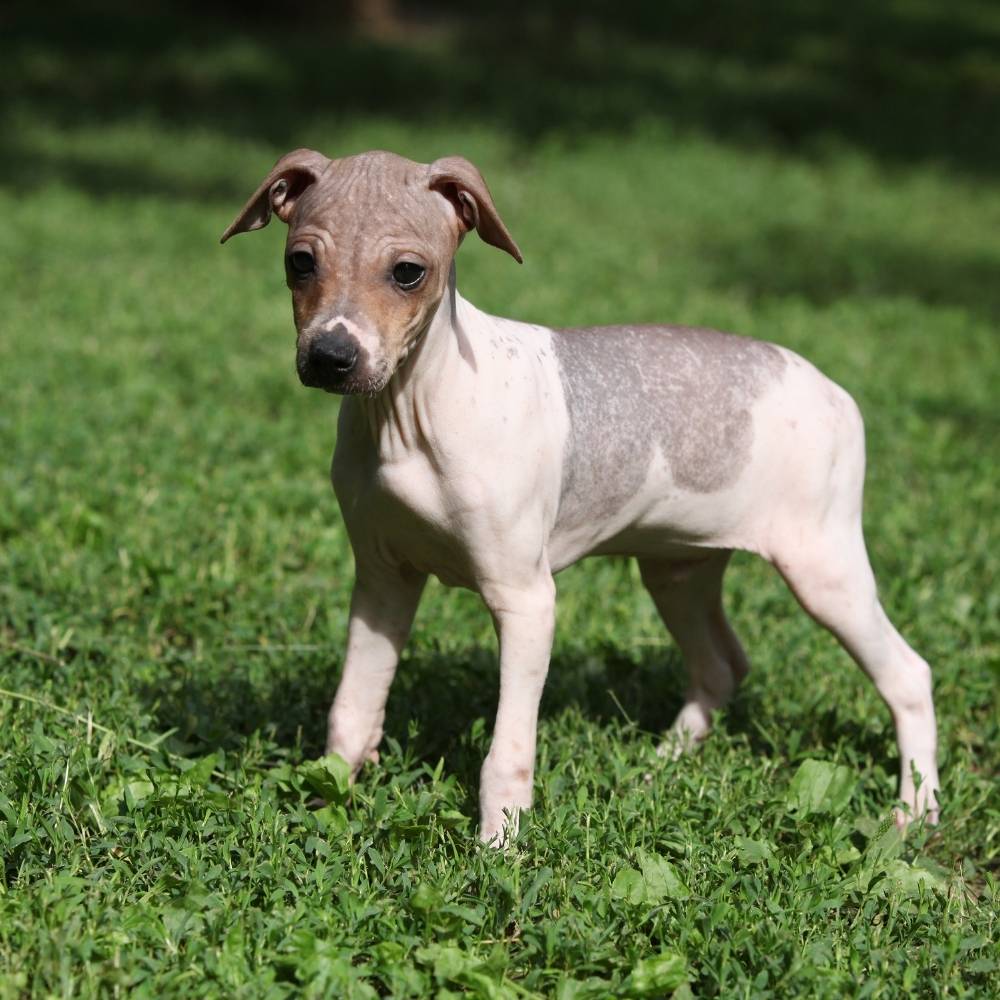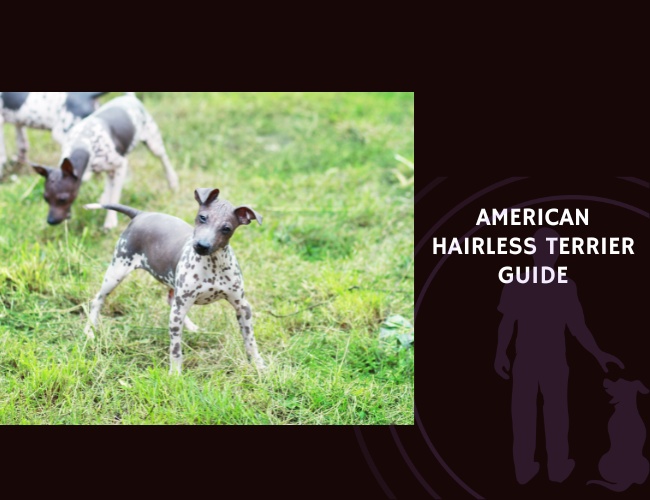Quick Facts about the American Hairless Terrier
- Origin: United States
- Weight: Males: 5–7 kg, Females: 4–6.5 kg
- Life expectancy: 14–16 years
- Coat Colour: Hairless or coated; variety of colours and patterns
- Breed Group: Terrier
The American Hairless Terrier is a bold, playful companion that redefines the terrier image with its unique, allergy-friendly coat—or lack thereof. With boundless energy and a curious mind, this breed thrives in homes that celebrate individuality and activity.
American Hairless Terrier History
The breed traces its roots to a Rat Terrier named Josephine, who gave birth to a completely hairless puppy in Louisiana in the 1970s. This spontaneous mutation laid the foundation for a new breed, selectively developed for its hairless trait and terrier spirit.
Officially recognised in the 21st century, the American Hairless Terrier was bred not only for its novelty but also as an active, intelligent, and friendly companion ideal for families with mild pet allergies.

American Hairless Terrier Temperament
These dogs are inquisitive, lively, and intelligent. True to their terrier heritage, they’re brave and determined—often taking on challenges much bigger than themselves. They love interactive play and enjoy being at the centre of family life.
Though sociable with people, early socialisation is vital to encourage good canine manners. Their alertness makes them excellent watchdogs, though their bark is typically reserved.
Note: Despite being hairless, they are not maintenance-free—they require skin care, sun protection, and warmth during colder months.
Health and wellness
With no coat to trap dander, they’re often considered hypoallergenic, though no breed is truly allergen-free. Their skin must be regularly cleaned and monitored for irritation, rashes, or sunburn.
They are generally healthy but may suffer from typical small-dog concerns. Dental care is especially important, as is nail trimming to prevent foot discomfort.
Significant problems:
Skin irritation and sunburn
Cold sensitivity
Dental disease
Patellar luxation
Legg-Calve-Perthes disease
Life expectancy: 14–16 years

The Complete Guide to American Hairless Terrier
🔍 Looking to go deeper into dog training?
Use these categories to explore targeted guides and articles on canine behavior, nutrition, obedience, entertainment, and more.









